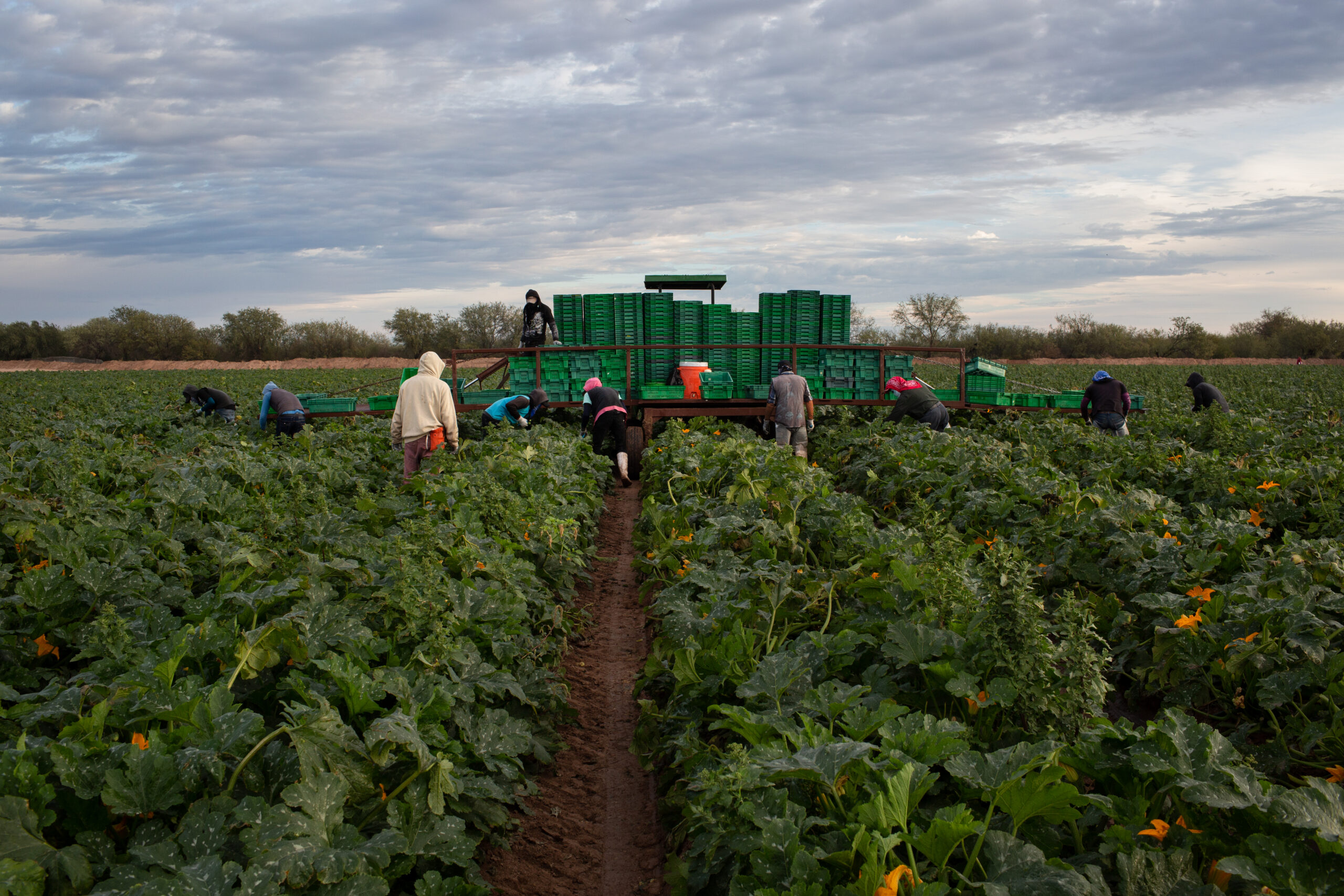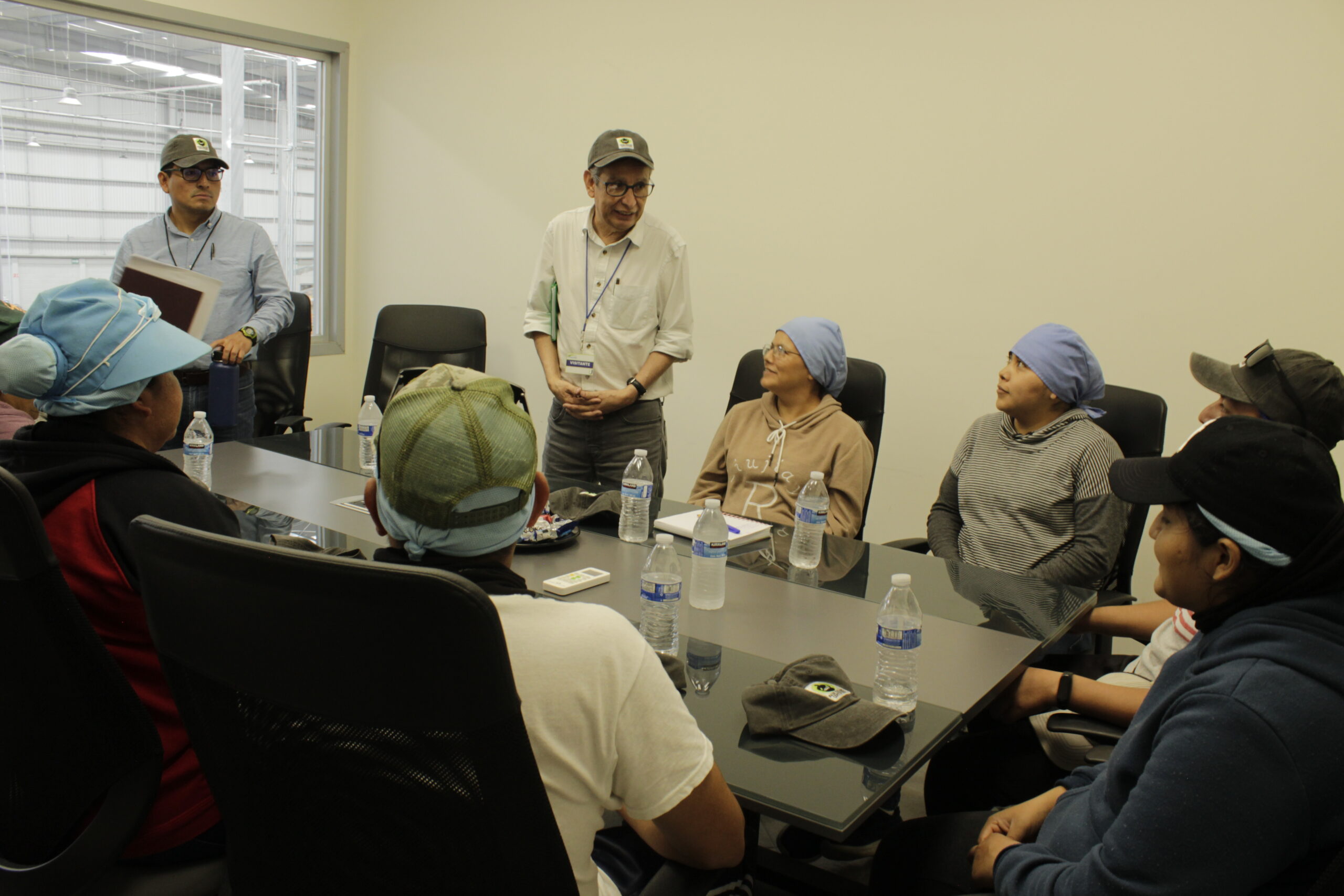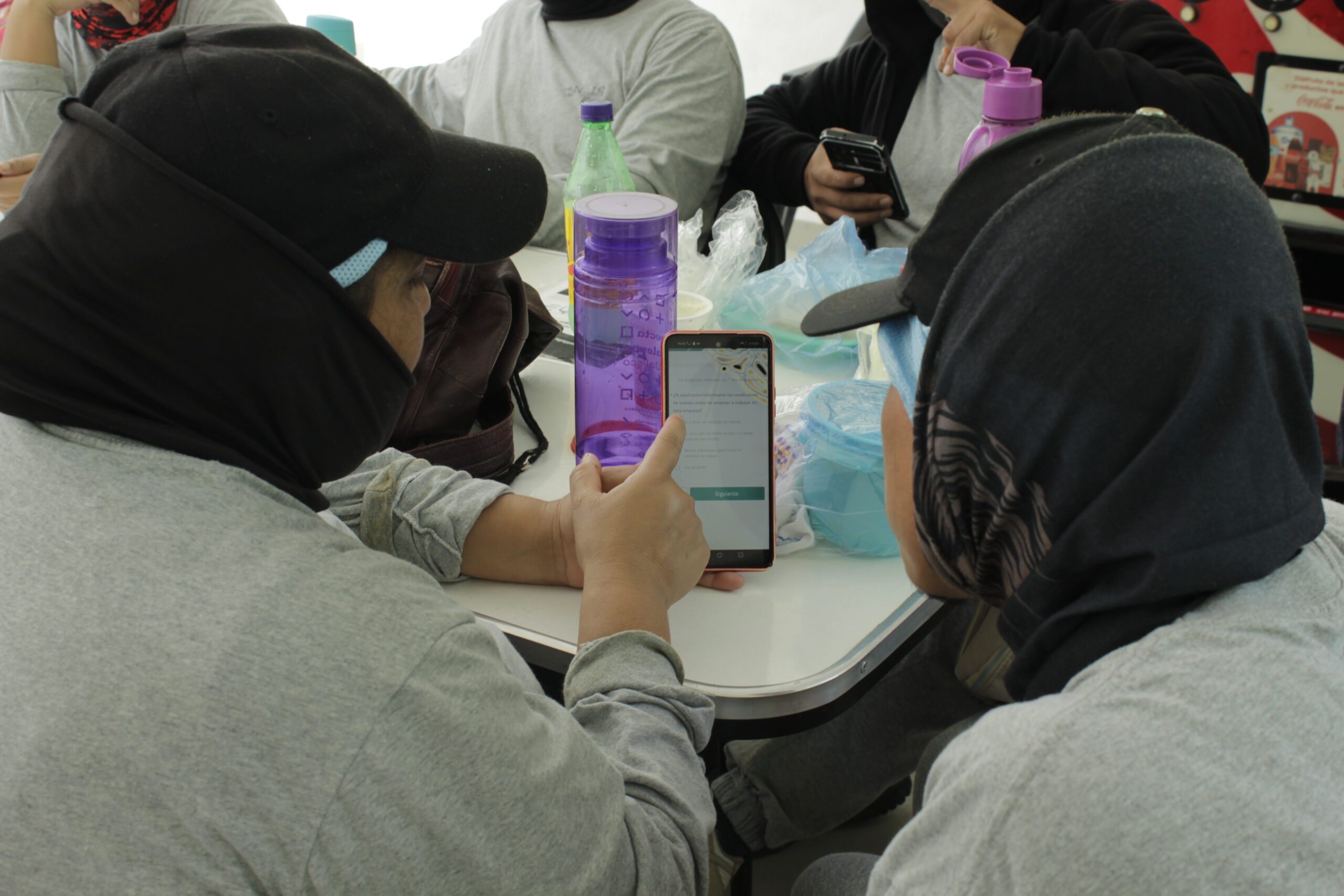
Farmers in Sonoma, Mexico working on a Fair Trade Certified™ Farm
The voices of workers around the globe are too often silenced, clearing the way for unsafe and unjust working conditions and creating a disconnect between people and the products that they buy. Every product on the shelf has been touched by countless hands on its way into your shopping cart, the majority of which remain anonymous. At Fair Trade USA, we’re on a mission to bring those voices to the forefront and use real-time feedback from workers to constantly improve working conditions across the supply chain for people and the planet.
Amplifying Worker Voices
Unlocking worker voices is a top priority at Fair Trade USA—and highlighting these voices is key to our mission. To do this, our team uses a surveying process to collect real-time feedback from workers, which has been successfully implemented in factories across Asia. The surveys provide visibility into worker experiences that can be used to better workplace conditions and safety. The survey’s success is supported by stable Wi-Fi, high literacy rates, and worker comfort with utilizing technology—all of which can be less present within remote communities.
Using a grant from the Walmart Foundation, our team worked to make our survey process more accessible for farm workers in those remote locations. Then, they headed to Guanajuato, Mexico to meet with producers in the agricultural sector and host a workshop on how to effectively deploy the survey.

Farm workers and the Fair Trade USA team attending the Worker Voice Workshop
Here’s what we learned:
1. Communicating the benefit of worker voices is essential
Workers are often at risk for exploitation, and speaking up can pose a threat to safety and job security. Managers and business owners may also be afraid to solicit employee feedback in fear of losing out on business or gaining a negative reputation. The workshop emphasized the importance of being able to share feedback anonymously, and the benefits that come with addressing issues efficiently and effectively. When an employee is able to share a concern early, corrective action can be taken before the problem escalates and causes further damage, building better working conditions and a stronger supply chain.
2. Creating an accessible and culturally sound survey process is critical to gathering feedback.
Amplifying worker voices means designing survey tools that can be easily understood and utilized by all. Internet access, literacy, and access to technology vary across the world, and recognizing this is an important part of designing effective survey tools. The Fair Trade USA team found that, given the diversity of the workforce, a number of workers did not speak the language that the survey was originally presented in, making it impossible to fill out. Many workers were also hesitant to utilize new technology to take the surveys on-site. Our team created a scannable link so that surveys could be taken on personal devices, limiting the use of communal technology and keeping surveys anonymous. A long-time farmer and community member shared that the training helped her feel confident using new technology, and that without it, she would not have been able to add her insights.

Workers setting up the new survey on personal devices—making it easy to complete the survey efficiently and anonymously
3. Involvement from a Fair Trade Social Engagement Team positively impacts worker participation in the survey.
The surveys were deployed by trained Fair Trade Social Engagement teams, which are community-elected teams made up of non-management workers that support implementation of Fair Trade Standards. Our team tested this against farms that did not participate in the workshop, and found that Social Engagement Teams help generate trust in the process and led to participation from a more diverse set of workers. Surveys deployed by the team led to more inclusivity and increased accessibility through language barrier help, technology support, and individual assistance. The social engagement teams also help to socialize the surveys, making providing feedback a workplace norm. Since Social Engagement team members are fellow workers rather than managers, their involvement helps take away some of the fear around submitting feedback, and opens up lines of communication between workers, managers, and Fair Trade USA.
Strengthening our Community
Our label is globally trusted because we take the care that producers deserve to engage workers and partner with them to ensure safe and fair conditions for people and the planet–and take action to remedy issues that arise along the way. Thanks to the Walmart Foundation, our team has been able to pilot a new process that makes it easier for workers around the world to share real-time updates about their experiences so that we can continue to improve our work. We plan to use the insights to further expand transparency and find new ways to amplify worker voices throughout the supply chain.
For more on our mission and impact, see what we certify and how we ensure standards are being met.